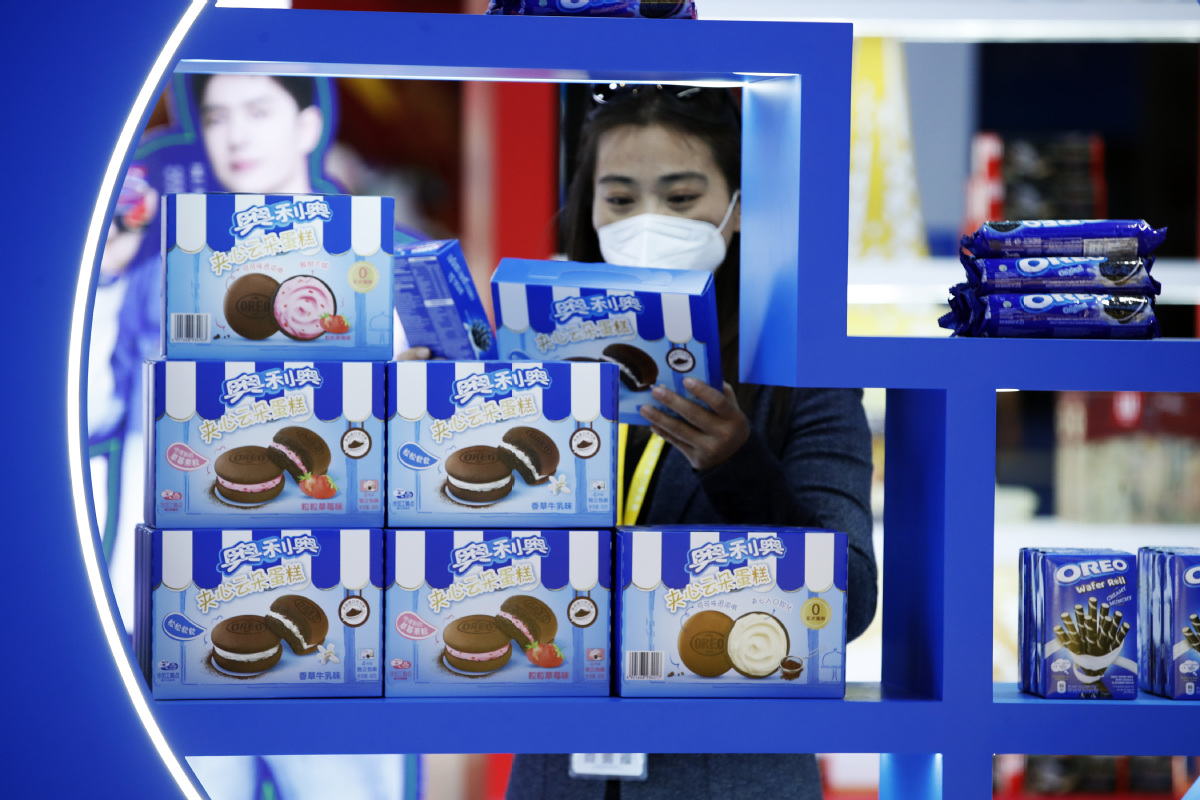Mondelez invests more, finds sweet success in Chinese snack market


With China expanding several programs to encourage multinational corporations to play a bigger role in driving its economic growth, Mondelez International Inc, a United States-based snacks manufacturer, is offering cake products for the first time in the country this year and has pledged to invest more in digital solutions, said a senior executive.
After investing 350 million yuan ($50.9 million) over the past five years, the company's plant in Suzhou, East China's Jiangsu province, joined the Global Lighthouse Network and became the world's first lighthouse factory in the global biscuit and snack industry in late January.
The Global Lighthouse Network is a project launched by the World Economic Forum in collaboration with McKinsey & Company in 2018.Formed by more than 130 plants owned by various companies to date, it is a community of manufacturers applying advanced technologies to speed up and spread the smart adoption of Fourth Industrial Revolution technologies — a fusion of artificial intelligence, robotics, the internet of things, Web3, blockchain, 3D printing, genetic engineering, quantum computing and other technologies — to their industries worldwide.
Empowered by digital technologies, Mondelez's local team can transform into an integrated supply ecosystem, resulting in improved on-time in-full delivery — a supply chain metric for measuring performance in the logistics industry — by 18 percent and cut of 32 percent in lead time.
Joost Vlaanderen, president of Mondelez Greater China, said China's optimized COVID-19 response and further opening-up measures have delivered positive signals to the world and global business community, and the company is optimistic about the snack industry's outlook in 2023 and beyond.
"With China entering a new era of green and innovation-led growth, the country will continue to open up for foreign investments and provide a more favorable business environment," said the executive, adding that Mondelez will grow and develop its portfolio and brand penetration in products such as biscuits and cakes in this lucrative market in the years ahead.
In addition to producing and selling biscuits, chocolate, chewing gum, confectioneries and drinks in China, Mondelez — the maker of Oreo cookies, Toblerone chocolate and Stride gum — will introduce frozen cakes to the Chinese market for the first time in April, after installing a cake production line at its Beijing plant in 2022.
China's demand for snacks has formed a market of over 800 billion yuan in annual sales in 2021. It is projected to cross the mark of 1 trillion yuan by 2025 and further double in scale in another decade, according to a report released by the industrial research institute of the 21st Century Business Herald in early January.
Attracted by China's huge middle-income group and increased spending power in lower-tier cities, Vlaanderen said Mondelez will leverage its large distribution network to reach new consumers to maintain robust growth in the country.
Operating in more than 160 countries and regions with around 80,000 employees, Mondelez's R&D center in Suzhou is not only providing innovation services for China, but also countries including Japan and Australia, as well as several nations in the Middle East and Africa.
Investment strategies for many foreign companies have undergone notable changes, from focusing on scale in the past to looking at business sectors driven mostly by high-tech, high added value and sustainability, said Guo Xin, a marketing professor at Beijing Technology and Business University.




































